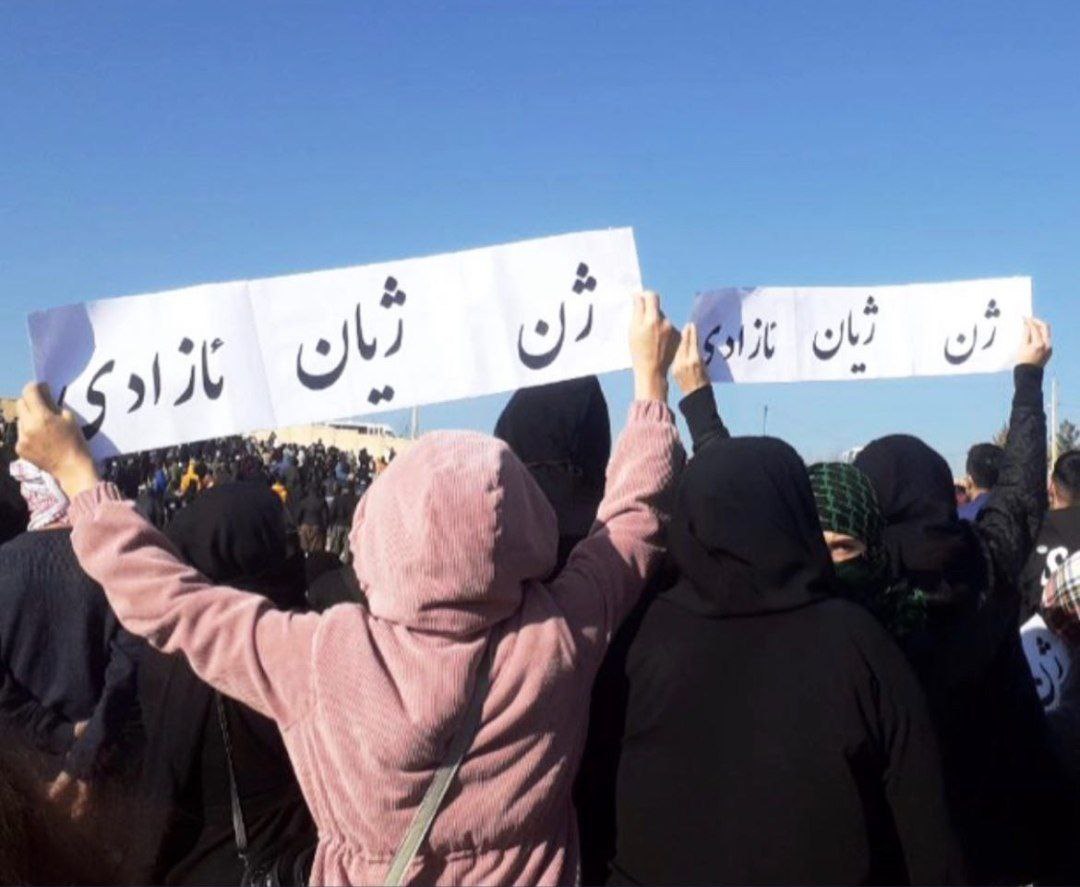A Brief History of “Jin – Jîyan – Azadî”
“Jin-Jîyan-Azadî,” (Women, Life, Freedom), was chanted again and again during Jina’s burial ceremony in her hometown Saqqez (A city in Rojhelat/Eastern Kurdistan in Iran), in Sanandaj (another Kurdish city) the next day, and almost immediately, it spread across other streets of Iran as the main slogan.
“Jin-Jîyan-Azadî,” originates from the Kurdish women’s movement in Bakur (Northern Kurdistan) in Turkey, and later in Rojava (Western Kurdistan) in North-Eastern Syria. The Kurdish Women’s movement has a forty-year old legacy of fighting against the most patriarchal authoritarian states in the Middle East on the one hand, and against patriarchal structures within their own community, on the other. Sakine Cansız (Sara), Zîlan, Beritan, Nesrin Abdullah, Îlham Ehmed, Hevrin Khalif, and Gülten Kişanak are only a few names of the torchbearers of this movement who dedicated their life to upholding, “Jin-Jîyan-Azadî.”
Abdullah Öcalan’s thought, the imprisoned leader of Kurdistan Workers’ Party (PKK), was formed in this context and inspired by these struggles. Despite being imprisoned for 23 years by the Turkish state, Öcalan is still the revolutionary leader of Kurdish Women’s liberation movement. Ocalan claimed in his speech in 2013 that, “Jin-Jîyan-Azadî,” will be a miraculous blueprint for the liberation of women in the Middle East. The fundamental tenets of liberation in the Kurdish women’s movement are “women liberation” and “environmentalism.”
In Turkey,the level of state violence against Kurdish women’s movement reached a new precedent on Jan. 9th.
2013 with the brutal assassination of one of the founding members of the PKK, Sakine Cansiz (Sara), along with the Kurdish women’s movement activists Fidan Doğan (Rojbîn) and Leyla Şaylemez (Ronahî) in the heart of Paris. Their names along with Jin, jîyan, azadî became a deafening roar against this grave injustice that was done to the women’s movement all across Europe and the world.. Once again, armed with the battle cry “Jin-Jîyan-Azadî,” the women of Rojava made up of the YPJ (Women’s Civil Protection Units) went to war against ISIS Jihadists and freed Kobanî in 2015. After this victorious event, the slogan was chanted in the streets of Kabul, Paris, and Berlin. Today, it is a known saying amongst most feminist groups around the world.
This movement and its slogan have now sprung up in Rojhelat/Iran. Especially after the Kobani revolution, “Jin-Jîyan-Azadî,” has turned into one of the main slogans in protests. With the widespread usage of the slogan on the streets of Iran today, it has the potential to be nurtured more and better, but also, continually progress and transform, and perhaps, open up the space for the liberation of the Middle East.
Sources:
https://www.plutobooks.com/9781786807397/the-kurdish-womens-movement/https://read.dukeupress.edu/differences/article-abstract/30/2/115/140361/Mother-Politician-and-Guerilla-The-Emergence-of-ahttps://www.kurdishpeace.org/research/civil-society/a-feminist-revolution-is-challenging-irans-regime/

